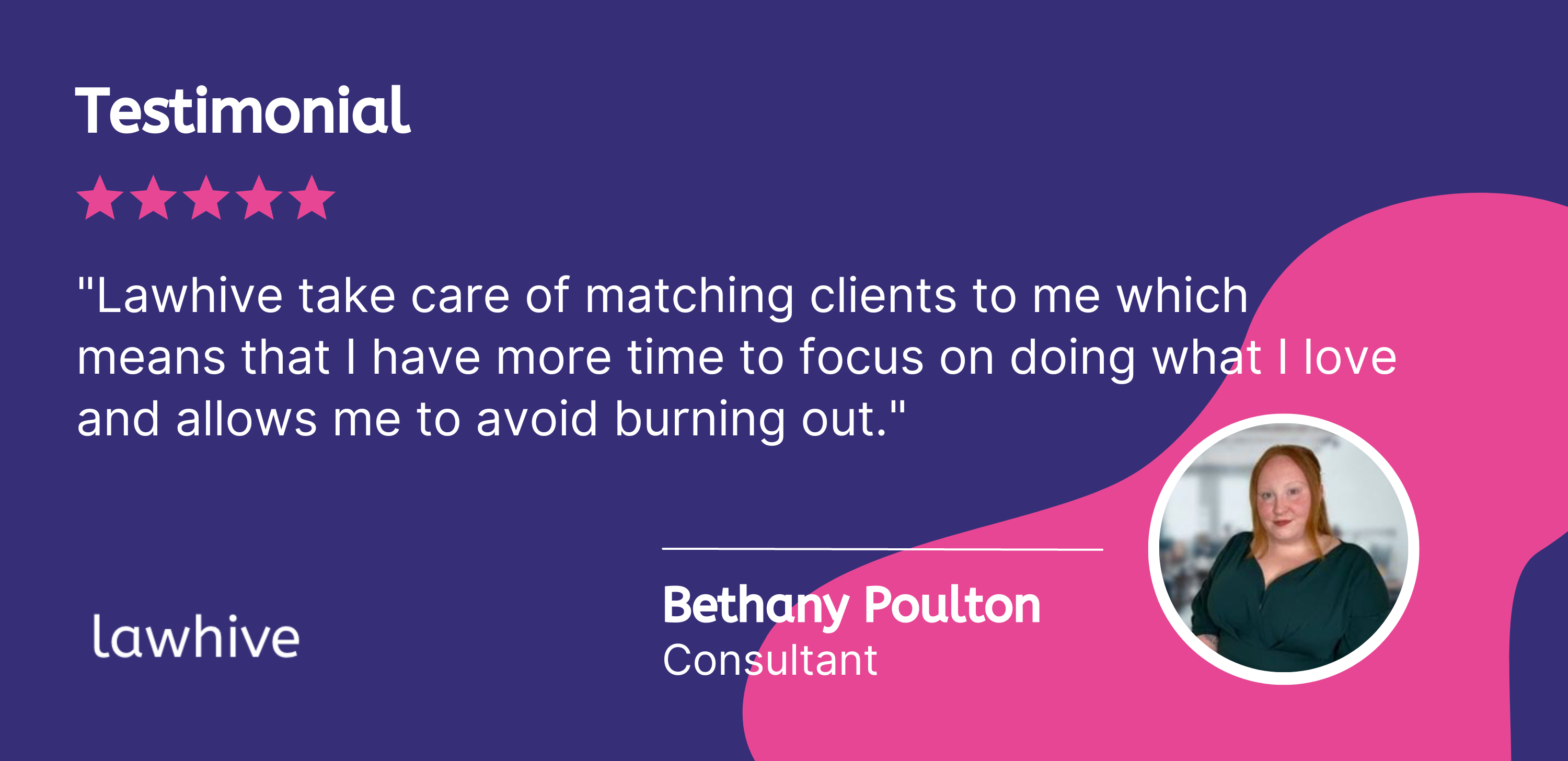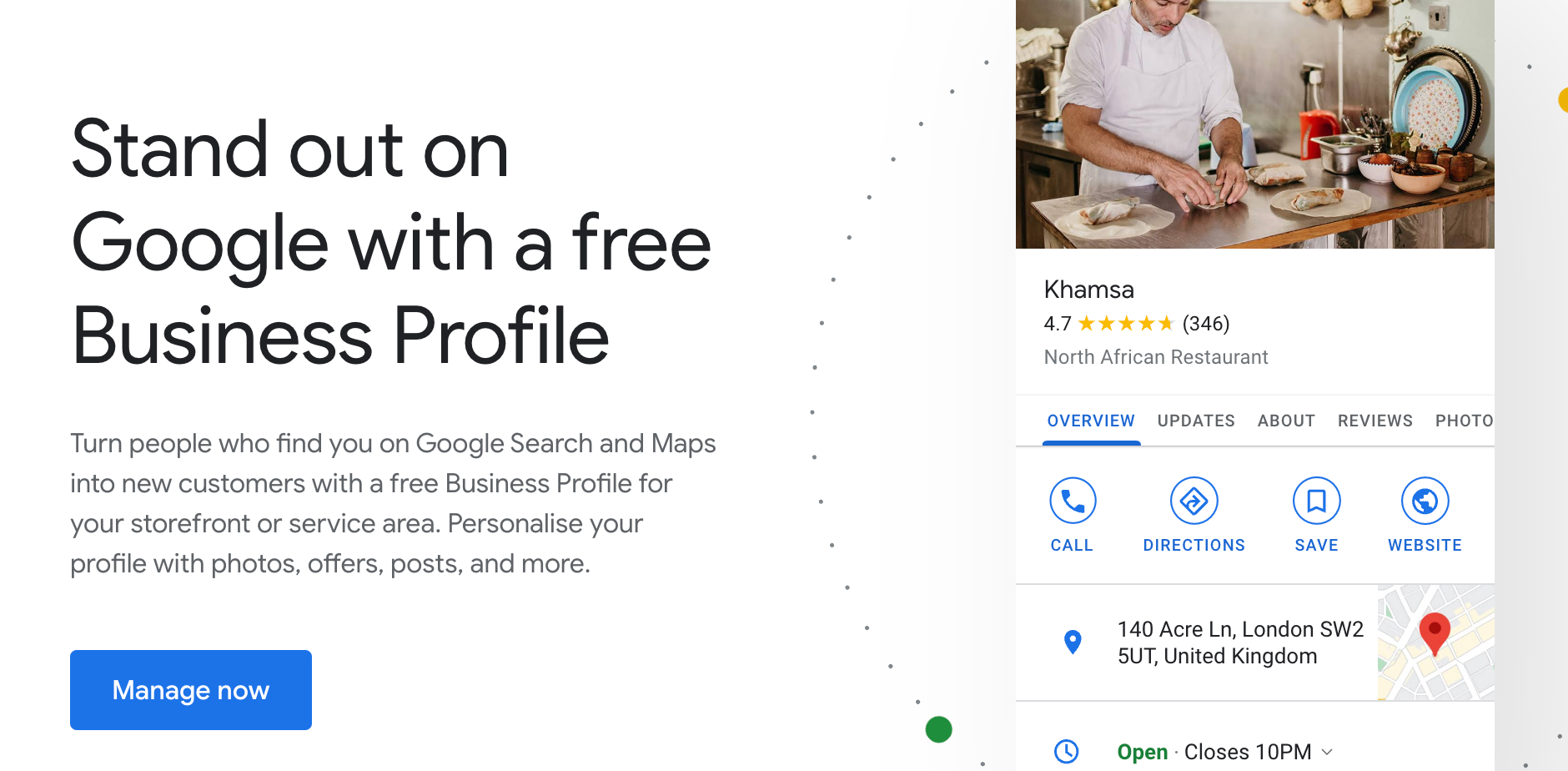
Becoming a consultant solicitor sounds great, doesn’t it? Carry on doing the job you’ve been doing, but work for yourself and keep more of the income that you bill than you did when employed.
But what if you don’t get enough clients to make it work?
The truth is, most consultant solicitors say that it was the best move they ever made, but it is important to learn quickly how to generate your own pipeline of work.
In this article, we share our top ten marketing tips for consultant solicitors:
1. Define Your Target Audience
Most lawyers are great at digging into details, looking to understand the facts and finding out more. And yet this is something we forget to apply to our marketing efforts.
Before starting to test any strategies, you should start by working out what type of clients you’re looking for. Ask yourself questions like:
- What do they need?
- What are their pain points?
- How old are they?
- Where do they get their information?
- Do they use social media?
The more that you can get to know your ideal client, the better you will be able to tailor your messaging, where you promote your services and position yourself as the perfect solution for them. This is something you should review regularly, e.g. once or twice a year.
How Can I Identify My Ideal Client?
Here are some practical steps you can take:
a) Look At Your Past Clients: Think about the clients that you’ve most enjoyed working with over the years. Who has benefitted most from your work? What characteristics link them all? Look for any common factors, like industry, legal needs and where the clients came from.
b) Define Demographics: Identify the demographic characteristics of your ideal client. This includes things like age, gender, location, company size, and annual revenue. Determine which demographics align with your expertise and are most likely to benefit from your services.
c) Dig Deeper: Once you have an understanding of who you want to work with, consider what makes them tick. Think about their values, attitudes, motivations, and behaviours. Consider what drives their decision-making process, their preferred communication channels, and their pain points related to legal issues.

d) Refine and Iterate: Defining your target ideal client is an ongoing process. As you gain more experience and insights, regularly revisit and refine your client definition. Stay updated on industry changes, client needs, and emerging trends to ensure that your ideal client profile remains relevant and aligned with your business goals.
Getting clear on your ideal client doesn’t mean that you’ll turn down people that don’t fit this mould. But it does mean that you can focus your marketing efforts to attract the clients that you most like working with and who can benefit most from your expertise.
2. Develop a Strong Brand Identity
How people perceive you online and the brand identity you create is crucial in attracting clients and making a good impression.
Your website should be visually appealing with up-to-date information and be easy to navigate. Create content on your site that is engaging and informative - remember your client persona and think about what would peak their interest. Try to avoid the legalese and make it relevant for their problems. When building your website, try to optimise it for the keywords your clients will be using to make it easier for them to find.
Don’t forget to update your social media profiles, at least on the channels that your ideal clients use frequently.
When prospects come across your social media profile, it's essential to have a well-crafted headline, a compelling summary, and a professional profile photo. Your headline should be specific, showcasing what you do, who you do it for, and the results you achieve for your clients. Incorporate keywords to improve online visibility.
Choosing the right consultancy firm means you’ll be empowered and supported to develop your own brand and following.
The key thing with brand identity is to let your personality shine through and be authentic with the content you create. This will differentiate you from the high street solicitor.
3. Nurture Your Existing Clients
Developing strong relationships with your existing and past clients is paramount. Make sure that you go above and beyond to deliver exceptional customer service and be responsive to their needs. When clients are happy, they become loyal advocates and clients for life, but can also become an amazing source of referrals.
At the outset, take time to ask your client how they prefer you to communicate with them - email, letter, phone, text - and then make sure to favour those channels.
Show your clients how much you care. Check in with them, show a genuine interest and ask if there’s anything you can do to help.

4. Leverage Social Media
Having a presence on social media platforms is really important for building your network. Once you’ve got your ideal client persona, you should be able to identify which channels they use the most and focus your efforts there.
Keeping active on channels like Facebook, LinkedIn and Instagram and share valuable content, engage with your clients and show your human side. Don't forget to sprinkle in some fun and lighthearted posts too!
Be careful to watch the legal jargon. The law can be confusing to someone not in the bubble, so think about how you talk to your friends or explain complex topics to your kids.
One way of combatting this is to imagine your ideal client as one individual and pretend you’re writing to them when you post.
If you can brave the camera, videos can be an engaging and fun way to connect with your audience and help them to get to know you on a personal level. Use video to create informative snippets, share client testimonials or even show a glimpse in the day of your life.
5. Solve Current Problems
As a self-employed lawyer, you need to stay at the forefront of current trends and embrace the latest technology to meet the needs of your clients.
These days, there are so many new ways of helping clients. You can use tools like Google Meet, Zoom and Microsoft Teams to collaborate online with clients. Offering electronic document signing where possible will provide more convenience and flexibility for clients.
Clients typically prefer a fixed fee model, meaning they know exactly how much they’re going to have to pay for each piece of work. Since most traditional law firms still favour time recording and hourly rates, you will instantly win favour with clients if you can provide a fixed fee pricing structure.
6. Using Online Platforms
Working with online platforms can be a great way to connect with clients all across England & Wales.
At Lawhive, our platform matches paying clients to the best solicitor for their needs. We handle acquiring clients, collecting compliance information, invoicing, payments, and customer support, allowing you to focus on what you do best.

The best part is - Lawhive is completely free to sign up to and use. We only collect a fee on anything billed through the platform. If you don't take on instructions, there's nothing to pay!
Find out more here.
7. Networking
I know what you’re thinking - networking has been done to death. Most solicitors when you talk about networking events will picture those 6am breakfast meetings.
You know, the ones where you start to question your life choices while listening to someone tell you about their “definitely not an MLM” business and trying to tell yourself that the buffet makes getting up early worth it.
But bear with me.
When I say networking, I don’t mean just sign up to a few standard events and show your face once a month.
Instead, have a think back to your ideal client persona, and also about the people that refer you work. What events do they go to? Here’s some examples:
- If you’re a property lawyer, look out for networking events targeted at landlords or those wanting to develop their buy-to-let portfolio. Make connections with mortgage brokers and estate agents and look out for events they’re attending.
- Looking for commercial clients? Seek out local accountants who may have clients needing legal support and find out what events they regularly attend.
- For employment law referrals, maybe try attending HR-training or events aimed at SME businesses.
You get the idea!
One sneaky tip is to look at your Recommended Events on LinkedIn. This will tell you what events your connections are attending, so you can look out for what interests your referrers and ideal clients. If you mark yourself as attending the event, you’ll also see the name of other attendees and have some instant connections to network with.
8. Public Speaking
Honestly, the idea of speaking in public isn’t for everyone. But if you are confident talking in front of a room, or even speaking virtually on webinars or podcasts, then this can be a real power move for increasing your visibility.
Speaking about your legal area with valuable takeaways and showing that you have innovative ideas can really establish you as the expert. This will draw clients to you as the go-to person, but also helps you connect with referrers and other opportunities to network.
How Can I Secure Speaking Opportunities?
Here are some tips to secure public speaking engagements:
a) Identify professional associations or industry events in your niche. Reach out to them to express your interest in speaking at their next event. Show them the value you can provide their audience by sharing your knowledge.
b) When reaching out to discuss speaking events, make sure to offer some suggested topics that are relevant to their event and audience.
c) Some networking events have speakers of the month who present on a topic to the rest of the attendees. This can be a great opportunity to get yourself in-front of the right people. These are often limited to paying members though, so it may only be relevant if the networking event is valuable enough to you to justify an annual sign up.

d) Creating valuable content through your website and posting videos/social media content can help establish you as a thought leader. Many event organisers seek speakers who have a strong online presence so this will help attract their attention.
e) Reach out to contacts in your networks who are involved in running events or connected to event organisers. Letting them know you’re interested in speaking opportunities can help to open doors.
9. Client Testimonials
Regularly gathering reviews and testimonials from your clients is vital to building your reputation in the marketplace.
These days, more than ever, clients are using online reviews to decide who to instruct. When they read about the positive experiences of people just like them, they start to imagine themselves getting similar results. These success stories resonate with them personally and motivates them to choose you over other solicitors.
Here are some effective ways you could gather testimonials:
a) Every time you finish a case, reach out to your client and ask for their feedback on the experience. If it’s positive, this can be used online to support your marketing, and if there are negative aspects, it will help you to learn and improve your service for others.
b) Send out a survey to your clients a few weeks after their case has concluded and include specific questions about the outcomes, their experience and how satisfied they were. Ask permission to use their responses as a testimonial.
c) If you’re confident in your services, ask clients to leave reviews on online review platforms, like Google My Business or Trustpilot. Direct them to these platforms and provide instructions on how to leave a review.

10. Tracking and Analyzing Marketing Efforts
This is arguably one of the most important tips on the list. If you don’t monitor the results of your marketing, then you’ll never know what is effective and what isn’t.
Marketing can be a dynamic process and what worked six months ago might not work today, so constantly evaluating results ensures you stay on track. Becoming a consultant solicitor can be challenging enough without putting effort into things that aren’t working.
The first step is to make sure you’re asking your clients how they heard of you. This way you can make sure you’re capturing the channels that are working best for you.
Keep a close eye on your marketing efforts and measure their effectiveness. This allows you to focus your investment (both time and money) into things that have the best results for generating leads and acquiring new clients.
Tracking the return on your investment (ROI) will help you to compare the cost of getting new clients compared to the revenue they generate. With this data, you can focus your efforts on marketing that brings in the most profits overall.
Conclusion
There are plenty of ways to generate a consistent income as a consultant and you’ll probably find a combination of these will elicit the best results. Whilst you want to be building your brand and establishing yourself as the expert, working alongside a platform that can provide a steady stream of work for the quieter days can help.
Using the tips in this article, you’ll be able to boost your earnings above the average consultant solicitor salary.
However you decide to market yourself, make sure you let your personality shine through. Authenticity is the secret sauce that sets you apart from the crowd, especially in an industry that is historically cold and serious.
People are drawn to genuine individuals, so let your personality be your superpower.
If you’re thinking about your next steps, or are an existing consultant that needs help juggling it all, then get in touch as there’s a good chance we might be able to help.!